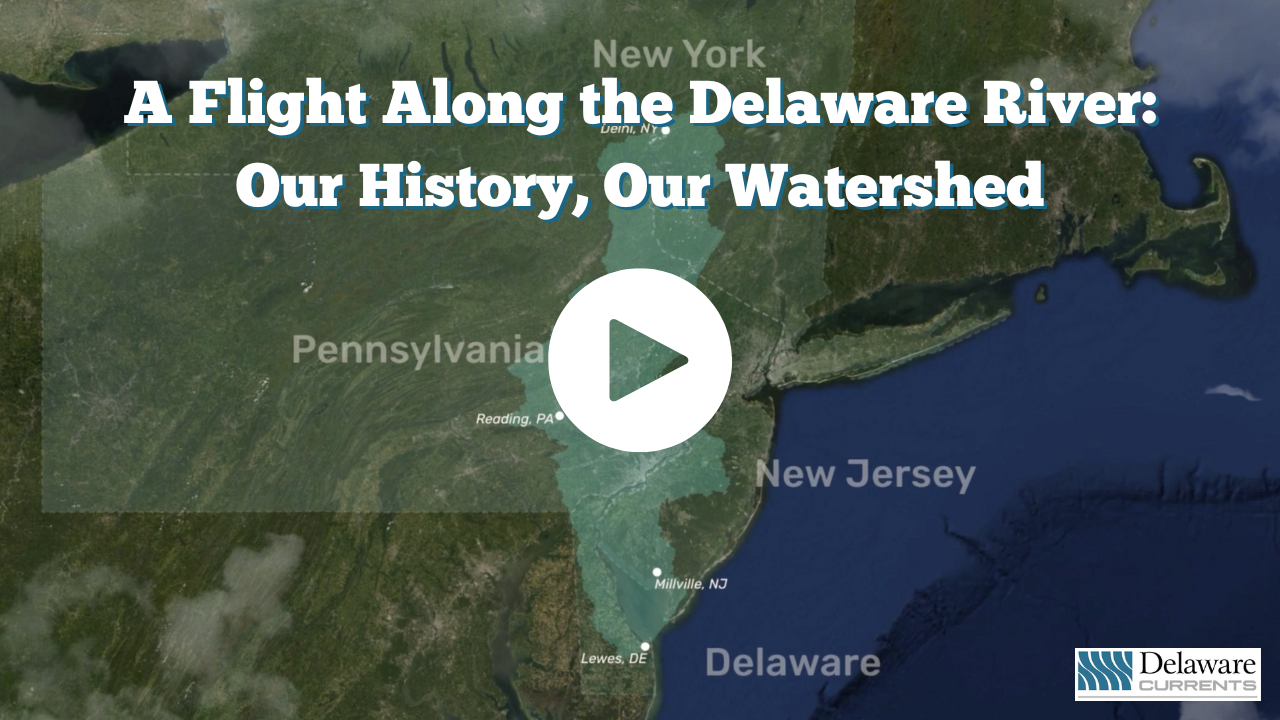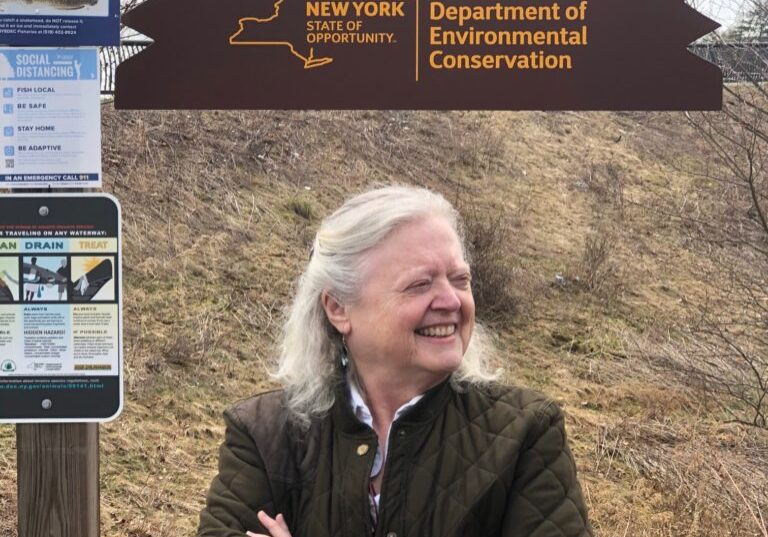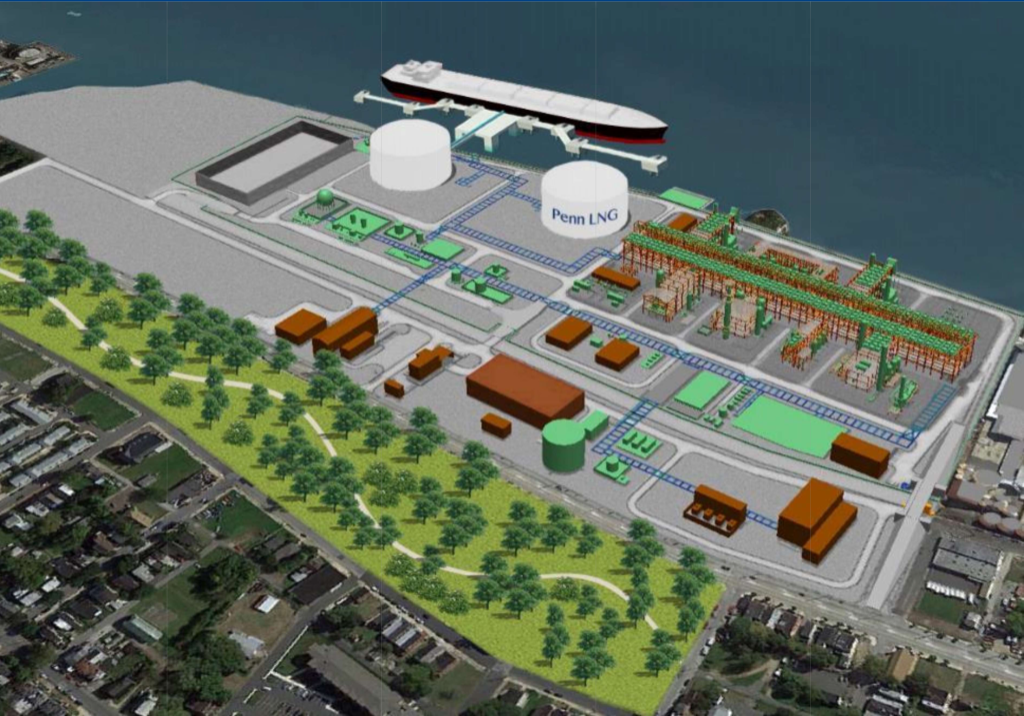
DRBC weighs regulating fracking wastewater — and the public can join the conversation
| December 6, 2021
Breaking news: Yesterday, Dec. 7, the DRBC released its FAQ on this topic. It looks to explain its position on its proposed rule-making: https://www.nj.gov/drbc/library/documents/ProposedRulemaking/import-export_102821/FAQ_import-export_proposed-rules.pdf
It took 10 years, but the Delaware River Basin Commission on Feb. 25, 2021, voted to prohibit high-volume hydraulic fracturing in the Delaware River Basin.
The commission is now turning its attention to a related issue, the import and export of water to and from the basin, with special attention paid to wastewater associated with high-volume hydraulic fracturing. The water from fracking is a toxic brew with known carcinogens, as well as being significantly radioactive. According to the DRBC’s own documents, it poses significant, immediate, and long-term risks to the development, conservation, utilization, management and preservation of the basin’s water resources.
As one of the few places where the public can be heard, the Delaware River Basin Commission can have some pretty lively public hearings.
The four that are taking place in the coming two weeks are likely to continue that tradition.
Dec. 8: from 2:30 p.m. to no later than 4:30 p.m.
Dec. 8: from 6:30 p.m. to no later than 8:30 p.m.
Dec. 15: from 1:00 p.m. to no later than 3 p.m.
Dec. 15: from 4:00 p.m. to no late than 6 p.m.
All the hearings will be Zoom’ed. For more information about listening in or speaking, (and more about the draft proposals) check here.
While the public hearings are about all the DRBC’s proposed rules regarding the import and export of water to and from the Delaware River Basin, the star of the show is the new rule that prohibits the discharge of fracked wastewater by land or water: (From DRBC Special Regulations Part 440.4 Full text here)
“No person may discharge wastewater from high volume hydraulic fracturing or HVHF-related activities to waters or lands within the basin.”
Back in 2017, the DRBC proposed similar rules about import and export of basin water, as well as what needed to be done with fracked water coming into the basin. But those rules allowed fracked water, once treated at Environmental Protection Agency-designated centralized waste treatment facilities, to be discharged into the basin.
Largely due to the intense review those draft rules received, especially peer-reviewed literature submitted in its Comment and Response Document, the proposed rules were never voted on by the commissioners, and have been superseded by the proposed new rules.
The DRBC has a complicated network of what might be called foundational documents. Many of them are affected by these changes: from the Federal Register, Nov. 22, 2021
“The commission proposes to amend its Comprehensive Plans and Water Code concerning importation of water into and exportations of water from the Delaware River Basin; to amend its Special Regulations — High Volume Hydraulic Fracturing to prohibit the discharge of wastewater from high volume hydraulic fracturing and related activities to waters or land within the Delaware River Basin; and to incorporate key elements of the latter proposed amendments into the Commission’s Water Quality Regulations.”
Environmentalists, who have learned through experience that the companies who must abide by the rules will likely look to find ways around them, are concerned that the new rules don’t go far enough.
Karen Feridun, founder of Berks Gas Truth, “The Commissioners need only look at the case they made for a ban on fracking in the Delaware River Basin to see all the reasons that imports of fracking wastewater should be banned.”
The sticking point seems to be that although the DRBC is banning the discharge of wastewater into the basin, it’s not banning imports of this water into the basin. Feridun contends that once this fracked water is here, in the Basin, the proposed rules would allow those waters to be processed, stored and disposed of in ways harmful to the Basin environment. Not to mention accidental spills.
On the other hand, it could be said that there’s a limit to how much the DRBC can regulate traffic in any state or between states. Each state is jealous of its own authority and after all, the commissioners are the governors of the four basin states. It’s also true that there’s an almost incalculable amount of “bad stuff” that traverses roads and rails all over this country and a prohibition such as demanded by the environmentalists might be easy to fall though lawsuits.
Doug O’Malley, director of Environment New Jersey has long been involved in the fight against fracking.
“It seems at first blush these rules are like the outright ban on fracking. But when you scratch the surface you end up with more questions than answers. Any and all fracking-related activity must be permanently banned,” he said.
“These regs create enough loopholes to ensure that we will have fracking-related activities in the watershed. These loopholes need to be closed.
“Fracked wastewater is the Achilles heel of the industry. There’s a deep hunger to find a more convenient disposal, much closer than Ohio. That’s expensive,” he continued.
“If there’s a loophole, the industry will drive a truck through it. The DRBC is in danger of a fumble on the 1-yard line, not to finish the job.”
And while environmentalists are unhappy with the proposed rule changes, members of the fracking community are decidedly unhappy as well. This comment from Marcellus Shale Coalition President David Callahan.
“After trampling on constitutionally protected private property rights, the Commission’s is now ignoring sound science and our industry’s leadership in water recycling and reuse technology. Pioneered in Pennsylvania, currently 93 percent of water is recycled, dramatically reducing the need for freshwater withdrawals. While the commissioners advance priorities of environmental extremists, a decade of evidence from the neighboring Susquehanna River Basin indicates that safe, responsible natural gas development has no detrimental effect on water quality or quantity.”
If both sides of this contentious subject are unhappy with the proposed rules, does it follow that the DRBC has hit the sweet spot?
Tune into the Zoom hearings and decide for yourself.


![DC_Image [Image 4_Assunpink Meets Delaware] meets Delaware The Assunpink Creek on its its way to meet the Delaware River. The creek passes through woods, industrial and commercial areas and spots both sparkling and filled with litter.](https://delawarecurrents.org/wp-content/uploads/bb-plugin/cache/DC_Image-4_Assunpink-meets-Delaware-1024x768-landscape-14f069364113da5e8c145e04c9f2367c-.jpg)



